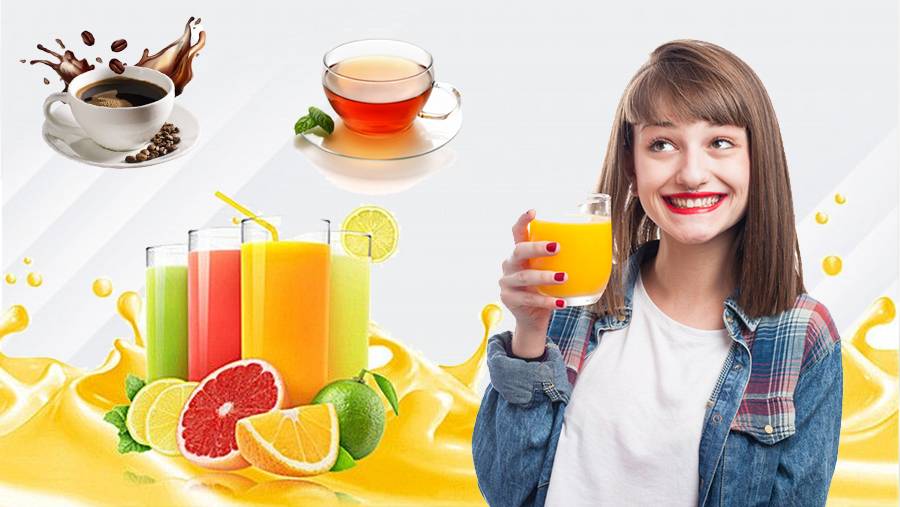
Hello
Select Address

There are plenty of beverages out in the market, along with plenty of misinformation. From your morning coffee to your child’s daily milk, almost every beverage is associated with some myths and facts. The internet is filled with contradictory opinions and researches. It often gets confusing to what’s right and what’s not.
Here are some of the popular beverage myths debunked:
Myth: Diet sodas are healthier than regular sodas.
A lot of people have a misconception regarding diet sodas over regular ones. It is true, diet sodas have little to zero amounts of calories. However, the label ‘diet’ doesn’t make it healthy for weight loss.
Nutritionists claim artificial sugar in diet sodas alter blood regulation, known as glucose homeostasis. Additionally, it increases appetite, makes you hungrier causing you to eat more and gain weight.
So, when compared to regular soda, drinking diet soda is a worse decision.
Myth: Juice cleanses are good for weight management
Even though juices are deemed to be a healthy choice, they are nothing but a sweetened drink. Packaged fruit juices have low fiber content and high fructose. Its manufacturing process actually strips off the essential vitamins. Juices with ‘no preservatives’ label have the oxygen removed which deteriorates the quality.
Coming to its sweet and natural taste, these juices are filled with artificial sugar. Thus, a juice cleanse is not a good choice for either diabetics or weight watchers.
Nothing can beat the value of freshly squeezed fruits!
Myth: Coffee is not good for heart health
Coffee has gained huge amounts of negative reputation when it comes to health. Consumers, especially with heart issues, become skeptical about coffee in the beverage section of a store. However, new studies show, coffee is linked to lower rates of heart failure.
Back to the myth, drinking 3 cups of coffee makes your heart race. It does so because coffee is a stimulant and the caffeine kicks in. On the contrary, a moderate amount of coffee daily is good for the heart and the nervous system. It also adds to the brain health.
Myth: Milk is the best calcium source
As unlikely as it sounds, cow milk is not the ultimate source of calcium. Humans are not capable of absorbing the calcium present in cow milk. Rather, studies show, milk promotes calcium depletion from our bones.
Disheartening though it is, a milk-free diet does not make us calcium deprived. Calcium-rich vegetables and fruits are out on the planet in abundance. From oranges and pineapples to broccolis and spinaches, all are rich in calcium.
Myth: Drinking liquids in any form keeps us hydrated
Drinking water all day has more than just frequent washroom trips! Water keeps us hydrated and helps in the smooth functioning of the system. Hydration is vital for the metabolic flow of every human body. Dehydration, on the other hand, is associated with anxiety and unconsciousness.
When it comes to consuming water, any kind of drinkable is not considered. Water content present in tea, coffee and juices do not serve the purpose of hydration.
Health personnel recommend drinking bottled water and not from public taps.
Myth: Tea cause dehydration
Tea has caffeine in it and caffeine is a mild diuretic. It causes the kidney to flush out extra sodium from the body through urine. Frequent tendency to urinate after the tea is what gave rise to this myth.
Though it is a diuretic, our bodies do not lose fluid more than it takes. We only expel fluid we do not need.
A morning cup of tea keeps us hydrated and gives the necessary shot of caffeine. Mild headache or a little dehydration has nothing to do with tea consumption.
Myth: Wine is Good for health
Although wine intake has some positive attributes, yet it is essential to have a frequency check. A glass a day has several benefits along with downsides. At times even a minimal amount of wine intake can lead to cancer. However, if you must drink, let it be red.
Red wine is rich in antioxidants and prevents cellular damage.
Validate your login
Sign In
Create New Account